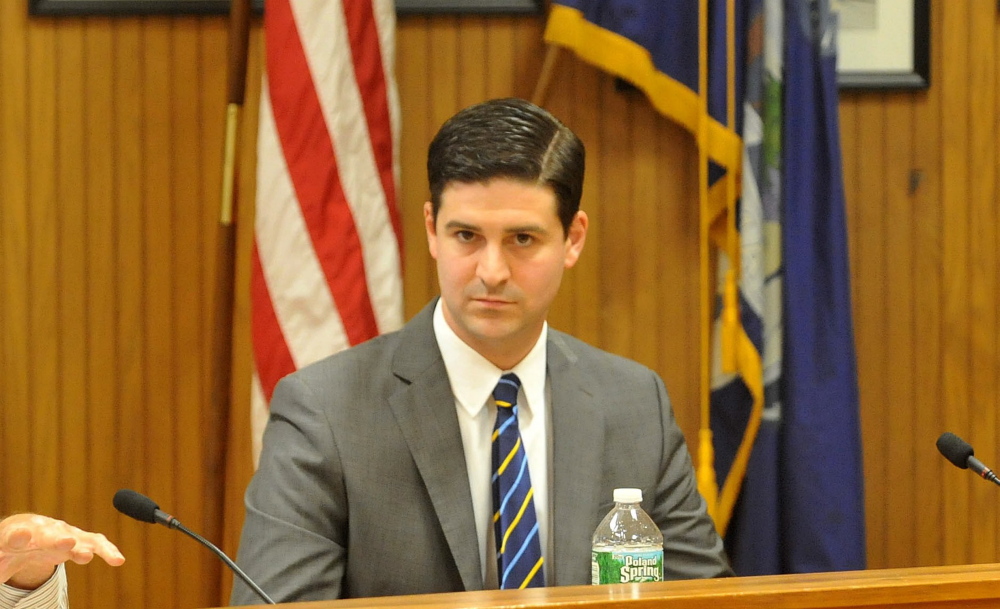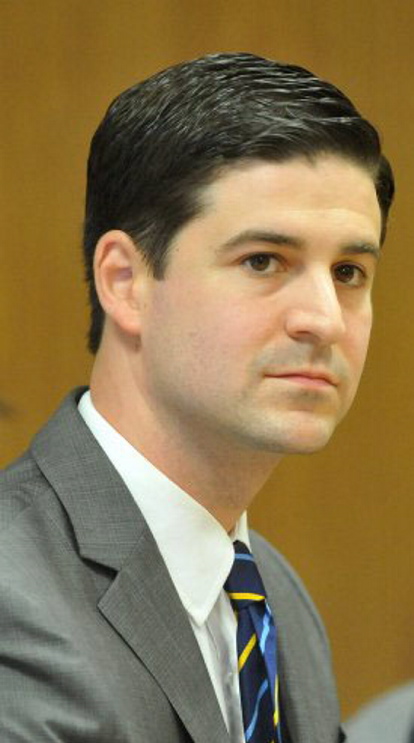WATERVILLE — Mayor Nick Isgro delivered an expected veto of next year’s city budget Wednesday afternoon, less than 24 hours after the City Council adopted the $37.4 million spending plan.
In an interview Wednesday night, Isgro said his veto was based on the council’s decision to direct roughly $58,000 in unexpected revenue from the Maine Department of Education to the city’s surplus, rather than to offset the city’s projected tax increase.
The council voted overwhelmingly to approve the budget and put the additional money into surplus. The $37.4 million budget is about 0.5 percent, or $200,000, larger than last year’s budget.
In his veto message issued Wednesday afternoon, Isgro argued that putting the money into surplus was the wrong move. Instead, he said, the city should use it to pay for education, just as the state intended, not sit on it for another year.
“Was not the intent of these funds to be spent on education?” Isgro wrote in his veto message. “I suggest we do so with these funds and reduce the expected increase that we are to ask from the taxpayers.”
If the extra money were dedicated to the budget, it could lower the expected tax rate increase from 50 cents to 40 cents per $1,000 worth of property, Isgro estimated. Waterville has a current tax rate of $27.40 per $1,000 worth of property.
To override Isgro’s veto, the council would need at least five of its seven members to vote in favor of an override. Otherwise, Isgro’s veto would be sustained, and councilors would need to hold new votes on a city budget. Councilors are scheduled to meet next on July 21.
Council Chairman Fred Stubbert, D-Ward 1, said Wednesday he was a little surprised at the veto but said the city needs to consider whether putting the money back into surplus was the right move.
“Nick is concerned about the same thing,” Stubbert said. “We both feel like we need to live in the present; no one knows what’s going to happen next year.”
Stubbert said he voted against adding the budget amendment to shift the money to surplus, but then voted for the overall budget because an overwhelming majority of councilors also were doing so.
“There was no sense in me voting against it,” he said.
At the council meeting Tuesday, Waterville School Superintendent Eric Haley announced that because the Legislature had approved an additional $25 million in general purpose aid for education, Waterville would be receiving $58,191 more than it expected in aid.
The city’s Board of Education had voted to direct that money toward surplus rather than use it to “buy back” some things lost in budget cuts this year or to offset the property tax, Haley said.
The council affirmed that decision, voting 5-2 to use the money for surplus and drawing a protest from Isgro.
Councilor Dana Bushee, D-Ward 6, said Wednesday that she thought the council’s vote was taken too quickly. Although she hadn’t read Isgro’s veto message, Bushee said she was expecting the veto after speaking to the mayor Tuesday night.
“I think the vote was a little rushed,” Bushee said. “I felt that if there had been a little more discussion on all the other options, I could have gone a different way.”
“I voted on a budget that was already approved by the council,” she added. “If there is a better option out there, I’m willing to investigate.”
Isgro’s budget veto was likely to be less controversial than his veto of contracts with the police unions last month. Those vetoes were overridden by the council after a contentious discussion Tuesday night. “I think the council is going to move forward and find the best way to use this money,” Bushee said.
At the heart of Isgro’s veto is the discussion about the $58,000, but about half of his two-page memo is dedicated to outlining general concerns about Waterville’s financial situation, including the decline of a commercial tax base, loss of revenue from the state, declining school enrollment, increased debt spending and negotiating three-year labor contracts “with little question in advance of their affordability.”
Turning to the issue of the city’s surplus, Isgro wrote that the spending plan approved Tuesday “holds the line” at keeping reserve funds at 12 percent of the city’s operating budget. Given that, a “strange argument” has arisen that unexpected funding from the state should be brought over to reserves “so that next year we can have more savings to spend.”
“Is this not to make the same error that we have been making all along which is to expect to have surplus to spend so we can mask over the true cost of services we provide?” Isgro wrote.
Using the additional funding for surplus instead of education, where it was intended, also “destroys our ability to argue for additional other monies from the state under the pretense of property tax relief,” he added.
Councilor Sydney Mayhew, R-Ward 4, said Wednesday that property tax relief is his top priority. Mayhew, along with Councilor Karen Rancourt-Thomas, D-Ward 7, were the only two councilors who voted against the budget Tuesday night.
The discussion will come down to a difference in philosophy between those who want to use the additional state money for surplus or to offset taxes, Mayhew said.
“The proper place for that money to be is in the wallets and pocketbooks of my constituents,” Mayhew said.
Peter McGuire — 861-9239
Twitter: PeteL_McGuire
Send questions/comments to the editors.






Comments are no longer available on this story